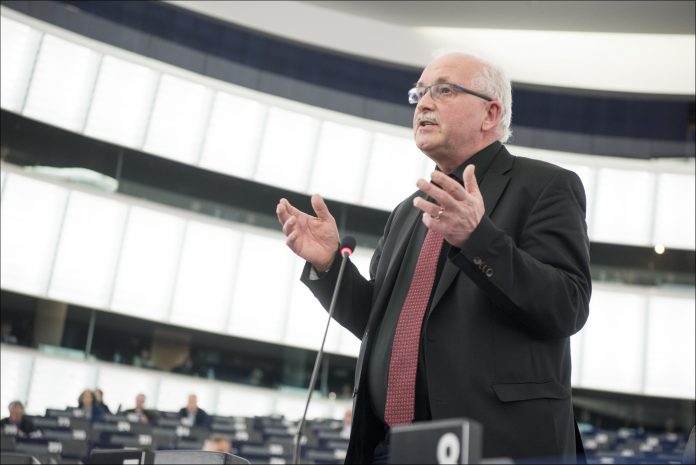Speaking during a debate at the European Parliament in Strasbourg, S&D Group leader Udo Bullmann called on the Austrian government to stop blocking proposals designed to protect citizens’ privacy online.
The intervention came in a debate on the follow up to the Facebook / Cambridge Analytica scandal. The Parliament will vote on a report on the issue later this week. The report comes after a series of hearings with the journalists and whistle-blowers involved in bringing the scandal to light, as well as with experts and representatives from Facebook.
“It is now over six months since the Facebook / Cambridge Analytica scandal broke and we still have not had satisfactory answers from Mark Zuckerberg & Co. Over 80 million Facebook users had their data harvested by Cambridge Analytica, to be used for political purposes. The scandal highlighted huge gaps in how Facebook protected users’ data from misuse and also raised worrying questions about how to protect our democracies in the digital age. We led the fight in the European Parliament for an investigation into the scandal and real action to ensure it can never happen again. We have called on the European Commission and national governments to act to protect our elections and finally back stronger online privacy laws. However, the Austrian Presidency in the European Council is blocking this. It is disgraceful that they have not even sent a representative here to take part in this debate. Protecting EU citizens’ privacy online is vital, not just for us as individuals but also for our democracies,” said S&D Group leader Udo Bullmann.
“Sebastian Kurz, next year we face the most important vote in the EU’s history, you claim to be a pro-European, do you want to face responsibility if these elections are manipulated? Stop listening to big tech and stop blocking legislation to protect privacy online!” he added.
“We also have serious concerns over Facebook’s business model, which make billions from algorithms that encourage the spread of false or misleading information. In recent elections in Sweden it was found that ‘social media algorithms repeatedly promote conspiracy content over accurate information’. Just last week, it was revealed that an anonymous group had spent more than £250,000 on political adverts designed to influence UK MPs to back a hard Brexit. Facebook rapidly needs to explain what it is doing to crack down on this spread of false news on its platform and what action it is taking to ensure users know who is behind political campaigns that appear on their timelines,” S&D Group chair concluded.

